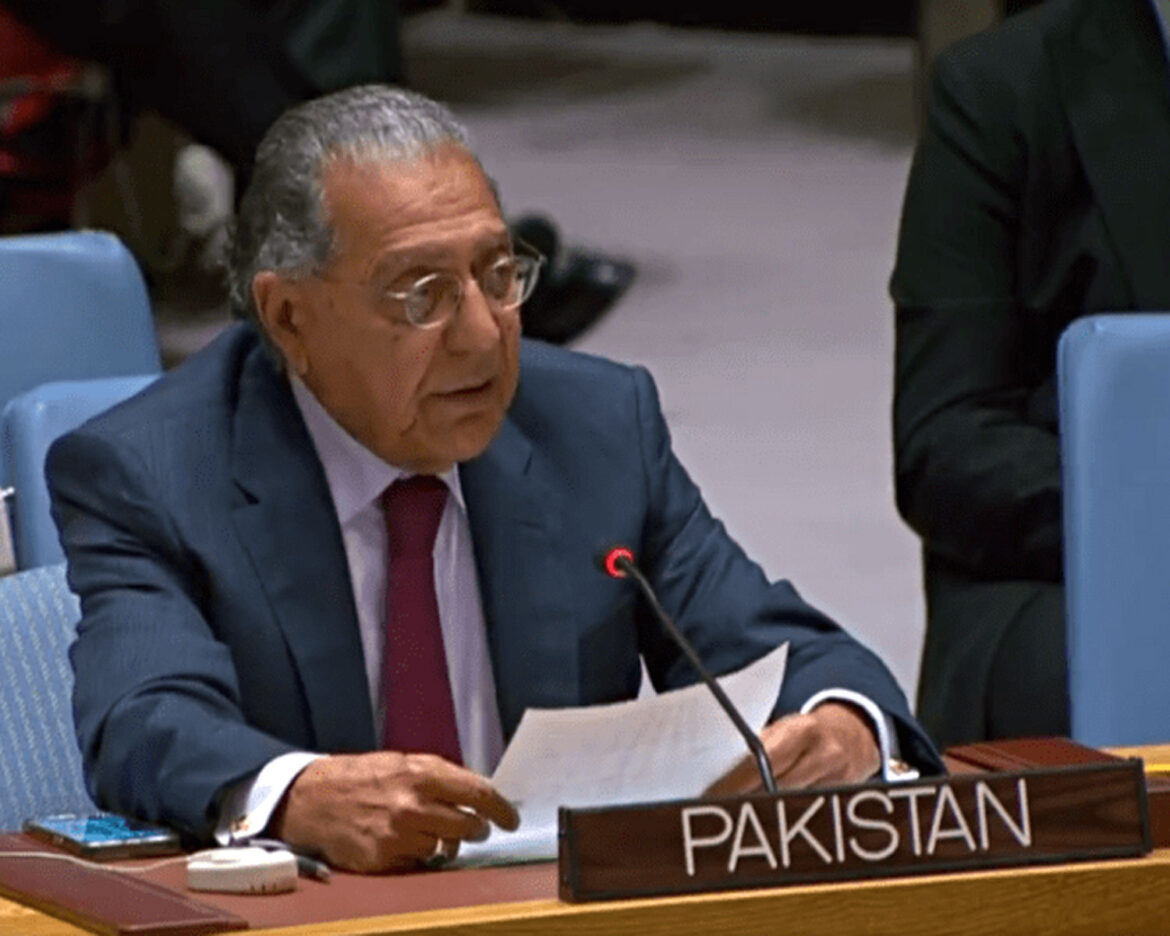Pakistan’s UN Ambassador, Munir Akram, addressed the UN Security Council on Wednesday, cautioning of a “serious threat of terrorism within and from Afghanistan,” particularly highlighting the rapid emergence of Tehreek-i-Taliban Pakistan (TTP) as a destabilizing force in the region.
The TTP, though separate from the Afghan Taliban, has escalated its attacks on Pakistani security forces since breaking a ceasefire in November 2022. Akram described the TTP as “the largest terrorist organization in Afghanistan,” conducting daily attacks against Pakistan with support from the Afghan Interim Government (AIG) and backing from Pakistan’s adversary.
Akram emphasized the TTP’s potential to serve as an umbrella organization for other militant groups, warning of its growing alliance with secessionist groups like Majeed Brigade and its long-standing connection with Al-Qaeda. He urged global action to curb the TTP’s strengthening position, fearing it could spearhead Al-Qaeda’s regional and global terrorism goals.
Ambassador Akram reiterated Pakistan’s readiness to cooperate with regional and international organizations to eliminate the TTP threat. He also reaffirmed Pakistan’s commitment to a peaceful and stable Afghanistan, stressing the need for political inclusivity within the country. However, he expressed concerns about ongoing human rights violations by the Afghan government, particularly regarding women and girls.
In addition to terrorism concerns, Akram highlighted the humanitarian crisis in Afghanistan, where 23.7 million Afghans require urgent aid. He urged the international community to fully fund the Afghanistan Humanitarian Needs and Response Plan, which has received less than 25% of the required $3.06 billion.
Akram called for reviving Afghanistan’s banking system and economic stability, emphasizing Pakistan’s continued support in expanding trade and implementing regional infrastructure projects.
Ambassador Akram concluded by urging the international community to hold the Afghan government accountable for policies that foster instability and to maintain a clear, purposeful engagement with the Taliban to restore normalcy in Afghanistan.



